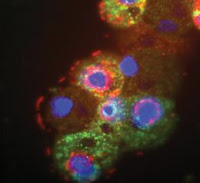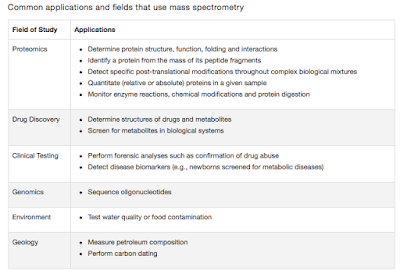BtB#5- Defining Immune privilege
Greetings,
Recently, I had a conversation with a person on the topic of "Immune previlege sites". Often the textbooks teach us that there is some kind of special areas or tissues in the body where immune system doesn't seem to be active. How can the immune system not do its regular business in some sites? One of the best example that the classic textbooks cite as Immune previleged is the Central Nervous system. Yet Neuroimmunology is a well defined concept. For a start, that makes a pretty good concept for a "Back to basics post".
The idea of immune privilege arises from original experiments showing that allograft transfer of tissue was not always rejected by the recipient and it depended on site of graft. It was proposed that these site are somehow devoid of an immunological surveillance and action, and was considered as privileged, hence the name. Following are considered as the immune privileged sites
An important point of understanding is the question- "What is the relevance of immune privilege in physiological context?". Immunological reaction is aimed at destroying a target, that is considered as non self. That means anything that is considered as non self based on antigenic display, immune system will be called into action. There are a couple of considerations. During the period of immune training, there are some antigens that are never shown to the immune system (even though they are self) and hence the immune system is not tolerant to these antigens. Such antigens are called as sequestered antigens. One classic example is the eye lens protein. Sometimes the immune system is not allowed to patrol with because of a barrier. Example is Blood-Brain-Barrier protecting the CNS.
Immunological reaction is often like a battlefield. Higher the severity of reaction stronger is collateral damage. This is why immune system is often referred to as "Double edged sword". If Inflammatory activities are allowed in region such as brain where neurons may be damaged it is safer to restrict the activity. It must be remembered that neurons don't regenerate. Thus the restriction and privilege. Another case is that of testis where sperms are produced. Sperms are recombinant haploids derivatives of male cells (If I can put it like that). This means, there are going to be antigens on sperms that may look different from the parent cell. If the site is not privileged, sperms would be immunologically attacked even before they got a chance to do what they were meant to do. When this mechanism goes wrong, testicular autoimmune disease may result. In short immune privilege is a physiological mechanism of protecting tissues where collateral damage due to immune activity is to avoided.
There is a great deal of debate on if the concept of privilege is true as we understand it, especially based on recent findings at least on few cases. For example, it was universally accepted that the brain is heavily protected against immune access. The recent findings evidencing that the brain itself has a lymphatic system has toppled the idea.
 |
| Table 1: Immune Privilege tissues Source |
- Central Nervous system
- Eye
- Placenta and fatal tissues
- Testis
An important point of understanding is the question- "What is the relevance of immune privilege in physiological context?". Immunological reaction is aimed at destroying a target, that is considered as non self. That means anything that is considered as non self based on antigenic display, immune system will be called into action. There are a couple of considerations. During the period of immune training, there are some antigens that are never shown to the immune system (even though they are self) and hence the immune system is not tolerant to these antigens. Such antigens are called as sequestered antigens. One classic example is the eye lens protein. Sometimes the immune system is not allowed to patrol with because of a barrier. Example is Blood-Brain-Barrier protecting the CNS.
Immunological reaction is often like a battlefield. Higher the severity of reaction stronger is collateral damage. This is why immune system is often referred to as "Double edged sword". If Inflammatory activities are allowed in region such as brain where neurons may be damaged it is safer to restrict the activity. It must be remembered that neurons don't regenerate. Thus the restriction and privilege. Another case is that of testis where sperms are produced. Sperms are recombinant haploids derivatives of male cells (If I can put it like that). This means, there are going to be antigens on sperms that may look different from the parent cell. If the site is not privileged, sperms would be immunologically attacked even before they got a chance to do what they were meant to do. When this mechanism goes wrong, testicular autoimmune disease may result. In short immune privilege is a physiological mechanism of protecting tissues where collateral damage due to immune activity is to avoided.
There is a great deal of debate on if the concept of privilege is true as we understand it, especially based on recent findings at least on few cases. For example, it was universally accepted that the brain is heavily protected against immune access. The recent findings evidencing that the brain itself has a lymphatic system has toppled the idea.
Forrester JV, Xu H, Lambe T, & Cornall R (2008). Immune privilege or privileged immunity? Mucosal immunology, 1 (5), 372-81 PMID: 19079201
Louveau A, Smirnov I, Keyes TJ, Eccles JD, Rouhani SJ, Peske JD, Derecki NC, Castle D, Mandell JW, Lee KS, Harris TH, & Kipnis J (2015). Structural and functional features of central nervous system lymphatic vessels. Nature, 523 (7560), 337-41 PMID: 26030524





Comments
Post a Comment